Veterinary Toxicology
The study of toxicoses, the identification and characterization of toxins, and the determination of their fate in the body are all part of veterinary toxicology. Because of the low frequency of instances seen in a practising context, veterinary toxicology can be difficult. When a toxicosis happens, it usually affects a significant number of animals and may result in legal action. Veterinary toxicology is a comprehensive field of study that deals with the detection and treatment of intoxications in pets, animals, and wildlife. Veterinary toxicology is a multifaceted mix that draws from and contributes to the veterinary medical profession, the scientific discipline of toxicology, and medical science in general. Pesticide usage and associated nontarget toxicity in aquatic creatures are always a problem in veterinary toxicology.
- Veterinary Forensic Toxicology
- Toxicosis
- Poisoning
- Intoxication
- Drug Related Toxicology

Marco Polettini
DVM, Italy
Andreia Freitas
INIAV/REQUIMTE, Portugal
Andreia Freitas
INIAV/REQUIMTE, Portugal
Kedibone Gloria Kgosana
Sefako Makgatho Health Sciences University, South Africa
Nnenna Ugwu
Anglia Ruskin University, United Kingdom
Rubens Dias de Melo Junior
Universidade Federal de Goiás, BrazilSubmit your abstract Today
Important Alert:
X


Title : Analyzing veterinary medicine residues in food: A comprehensive guide
Andreia Freitas, INIAV/REQUIMTE, Portugal
Title : Quantifying changes in facial expression following hot-iron disbudding under procaine hydrochloride and meloxicam treatment in Holstein dairy calves
Nnenna Ugwu, Anglia Ruskin University, United Kingdom
Title : Trypanosoma vivax in and outside cattle blood: Parasitological, molecular, and serological detection, reservoir tissues, histopathological lesions, and vertical transmission evaluation
Rubens Dias de Melo Junior, Universidade Federal de Goiás, Brazil
Title : Characterization of porcine rotaviruses in the Czech Republic
Romana Moutelikova, Veterinary Research Institute, Czech Republic
Title : Determination of Circulating Foot-and-Mouth Disease Virus Serotypes in Kenya (2023)
Hellen Mutua, Foot and Mouth Disease National Reference Laboratories, Kenya
Title : Welfare for Amazonian wild animals
Eliane Cardoso Carvalho Moraes, Jungle Warfare Training Center/ Army, Brazil